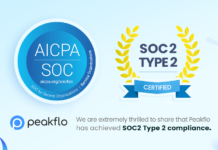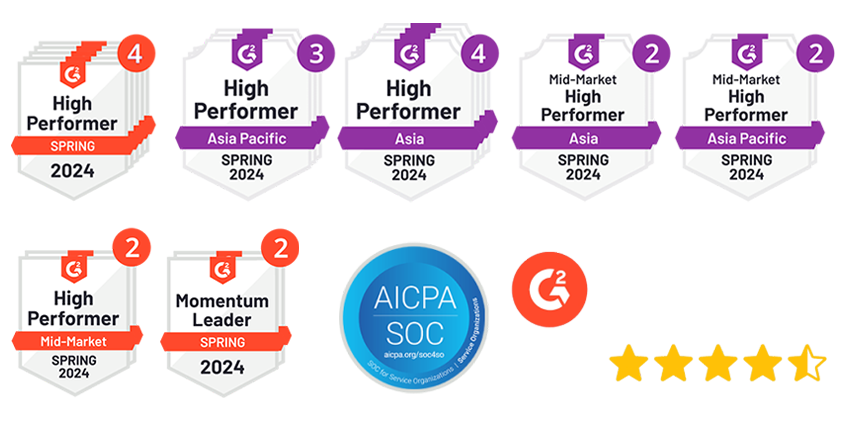SINGAPORE, OCTOBER 10th, 2023 — Peakflo organized a live panel session at the Accounting and Finance Show 2023, featuring:
- Saurabh Chauhan, Co-founder and Chief Executive Officer at Peakflo
- Anirudh Thandu, Partnership Manager Asia at Xero
- Seow Tian Teo, Former Head of Finance at Hai Sia Seafood
- Stephan Yeong, General Manager at Luther Services
Our esteemed panelists delved into the pressing topic of “How can traditional finance teams avoid wasting almost half a year on manual finance operations?” This crucial discussion aimed to shed light on challenges faced by traditional businesses and the transformative power of digitization in the finance sector.
Key Highlights of the Session
- Why is it important to streamline finance and accounting processes for traditional businesses?
- How the current finance teams are structured and distributed their time across different activities?
- What will be the future of finance and finance professionals?
Challenges in Traditional Businesses
The panelists discussed various challenges faced by traditional businesses, including:
- High volume of paper-based and transaction-based processes
- Time-intensive manual tasks such as bookkeeping, month-end close, etc.
- Outdated tech stack including legacy systems and spreadsheets.
- Impact on cash flow due to traditional payment methods such as bank transfer, checks, etc.
- Lack of visibility into process health.
As shared by our panelist, Seow Tian Teo, Hai Sia Seafoods was struggling to manage the amount of paper and the volume of sales transactions. Additionally, the need to prepare all these records for an annual audit added another layer of complexity to their process.
Pain Points of Finance Teams Working in a Traditional Environment
AR and AP Management: The bulk of the time is spent on managing accounts receivable and accounts payable, leaving little room for strategic finance operations.
Firefighting: Finance teams often find themselves caught up in firefighting tasks, from paying bills on time to chasing payments and informing stakeholders.
Paper Overload: Dealing with the sheer volume of paper, approval processes, and digitization challenges.
Lack of Ecosystem: Traditional businesses often lack the ability to integrate with existing applications, hindering efficiency seamlessly.
As seen most finance operational teams end up spending their time on low-value tasks such as manual data entry and consolidation work. On the other end, high-value tasks such as strategic finance and forecasting are often overlooked.
For businesses aiming to redirect their focus towards strategic financial operations, the key lies in embracing automation.
A pivotal suggestion from the panel discussion highlighted the need for a seamless data flow between applications tailored to specific business requirements. Anirudh Thandu mentioned, that utilizing the right software solutions and integrating them with accounting systems can significantly reduce the time spent on manual data entry. This will improve reporting, payroll, inventory management, cash flow monitoring, and accounts receivable and payable. This holistic approach builds an interconnected ecosystem to streamline processes and simplify complex tasks.
Why do Traditional Businesses Need to Digitize?
The underlying issue blocking the path to digitization for most traditional businesses is – AWARENESS!
Our panelist, Stephan Yeong, revealed a common thread with various businesses—he engages in daily conversations with numerous companies, and a prevailing trend in the industry is the widespread lack of awareness regarding technology that could revolutionize and digitize their traditional processes. Many businesses seem to be oblivious to the potential benefits and efficiencies that modern technology can bring to their operations. This observation signifies a gap within the industry about the transformative potential of adopting digital solutions.
Businesses need to be made aware that solutions promoting time-saving, collaboration, and drill-down capabilities exist in the finance space. So, before digitizing processes, businesses must understand the need for digitization.
- Helps to increase productivity by eliminating the need to perform repetitive tasks daily.
- Enables businesses to scale as they grow and stay ahead of the competition with data-driven strategies.
- Eliminate frustration among employees and reduce errors caused by manual paper-based processes.
- Mitigate security risks such as fraud, leakages, and theft.
- Comply with government regulations. Singapore government mandates the use of digital finance solutions in public companies, government bodies, banks, etc. to file their carbon accounting data or the ESG reporting data.
- Systemize and gain end-to-end visibility over audit trails and data in a centralized space.
- Enhanced employee retention by relieving finance teams from mundane compliance tasks, fostering job satisfaction, and enabling them to concentrate on strategic financial operations.
Digitization streamlines process, reducing manual errors and enhancing efficiency. By adopting advanced technologies, companies can translate these values into improved workflows, increase accuracy, and propel revenue growth.
Evolving Roles: Future of Finance Teams
Envisioning the future of finance teams, a few key predictions emerged from the insightful discussion.
Firstly, the daily landscape for finance professionals is to shift towards higher-value tasks. This transformation suggests a move away from routine and manual operations towards strategic functions that contribute directly to business growth. Additionally, the adoption of industry-specific solutions will be on the rise to address the unique pain points of finance teams across the industry verticle. Furthermore, administrative tasks are likely to be outsourced. This evolution allows in-house finance teams to focus on their core responsibilities while delegating routine administrative functions to specialized external entities.
What are the Expected Trends in the Future of Finance?
The future of finance is intertwined with the advancements in AI and machine learning. For traditional businesses, the initial step is to embark on a journey of digitalization, embracing automation as the foundation for progress.
Let’s take a look into the exciting trends of the future of finance:
e-Invoicing: e-Invoicing will play an important role in carbon accounting and ESG emission mitigation. Streamlining invoicing processes will enhance efficiency and contribute to environmental sustainability.
Integrated ecosystem: Integration of applications will be crucial for seamless data flow and adoption of new solutions that address industry-specific pain points. API connectors will play an important role in enhancing the efficiency of pre-existing solutions.
Optical Character Recognition (OCR): The implementation of OCR technology will gain popularity, allowing automatic extraction of information from documents, reducing manual input requirements, and improving accuracy.
Automated Messaging by AI: Leveraging AI for automated messaging, whether through WhatsApp or email, will revolutionize business communication, ensuring timely and efficient interactions across the finance ecosystem.
Closing Thoughts: Embracing the Future of Finance
The last few decades, from the era of SAP and Oracle dominating ERPs to the present, reflect a fundamental shift in the finance function. In the coming years, we anticipate a landscape where interoperability becomes the cornerstone of efficiency. Saurabh Chauhan mentioned that the distant dream of X software seamlessly connecting with Y tools to resolve Z pain points will become a reality. This holds the key to addressing a diverse range of challenges.
As we navigate toward the future, there’s a collective call to action— an imperative need to grasp the language of data, delve into the realms of analytics, and understand the impact of AI on our workflows. The time has come to empower finance professionals to redirect their focus from transactional-based activities toward higher-value activities.
The dynamic combination of digitalization and cutting-edge technologies brings a transformative era for finance, where efficiency, sustainability, and innovation converge to redefine the way financial operations are conducted.
The message is clear: Adapt, automate, and embrace collaboration!












































